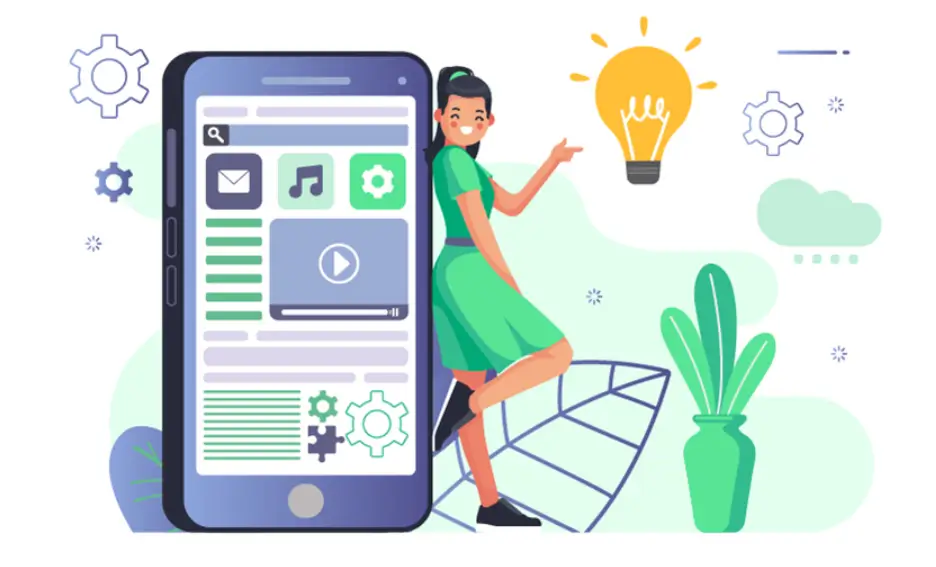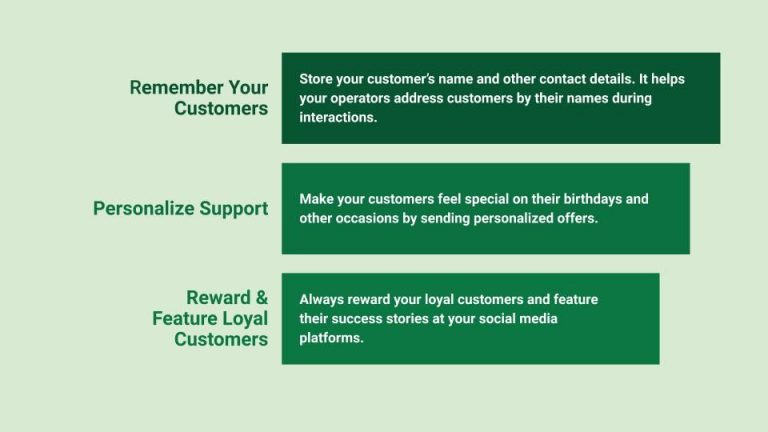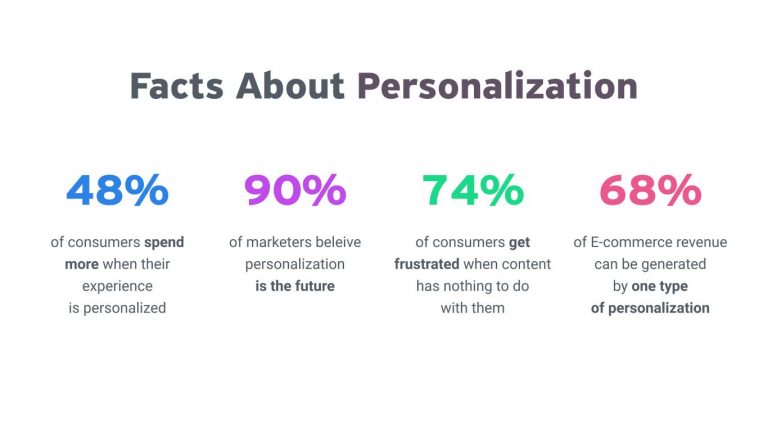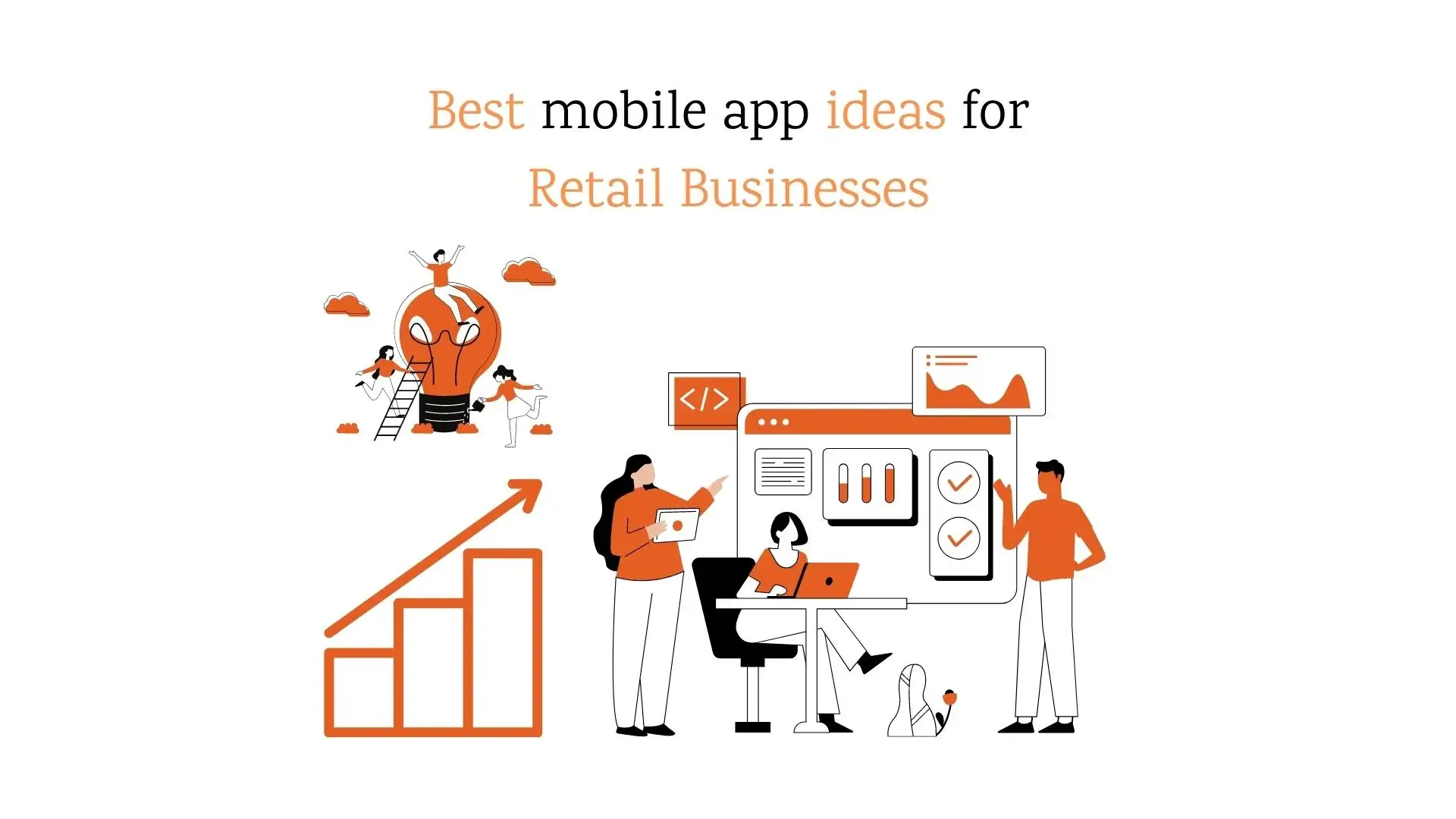The e-commerce business has been exploding in recent years. Customers access e-commerce sites and make purchases using their cell phones. The competition among the existing players, on the other hand, is excessive. It necessitates the development of new techniques to improve their audience outreach. This hypothesis has also been supported by research. Mobile commerce has seen a substantial increase in demand. However, bear in mind that having a responsive eCommerce site/app alone may not be sufficient to provide a better customer experience. The target demographic likes to utilize mobile applications that are creative and give them a good value for time spent.  Image Source
Image Source
 The first step in producing money from your business is to get it known to your customer base. If you don’t know about it, you won’t buy it. Mobile applications are useful when reaching out to potential consumers since they bring the product demo or, in certain situations, the product or service itself to the customers’ attention. Enhanced Customer Experience The customer reigns supreme. Whatever industry you’re in, you’ll always want to please your consumers by solving their problems. All that distinguishes you from your competition is how you do it and how you make people feel about you while you’re doing it.
The first step in producing money from your business is to get it known to your customer base. If you don’t know about it, you won’t buy it. Mobile applications are useful when reaching out to potential consumers since they bring the product demo or, in certain situations, the product or service itself to the customers’ attention. Enhanced Customer Experience The customer reigns supreme. Whatever industry you’re in, you’ll always want to please your consumers by solving their problems. All that distinguishes you from your competition is how you do it and how you make people feel about you while you’re doing it.  Focusing on the customer experience increases revenue by 4% to 8% for companies. Also, 84% of the companies that have undertaken customer experience improvisation operations have reported a significant increase in their revenue. An effective Promotional Tool Directly connecting with consumers is one of the most important benefits of mobile apps for eCommerce. You can track how often your consumers use the app and when they purchase. It also helps you reach out to the target demographic through various channels. Improved conversion rates are the result of a targeted marketing strategy. Using the targeted approach, you may develop tailored offers based on their activity and demographics. Mobile applications, according to studies, have a greater order value than web pages.
Focusing on the customer experience increases revenue by 4% to 8% for companies. Also, 84% of the companies that have undertaken customer experience improvisation operations have reported a significant increase in their revenue. An effective Promotional Tool Directly connecting with consumers is one of the most important benefits of mobile apps for eCommerce. You can track how often your consumers use the app and when they purchase. It also helps you reach out to the target demographic through various channels. Improved conversion rates are the result of a targeted marketing strategy. Using the targeted approach, you may develop tailored offers based on their activity and demographics. Mobile applications, according to studies, have a greater order value than web pages.
 Consider the following retail personalization strategies:
Consider the following retail personalization strategies:
 Image Source
Image Source
How do mobile apps improve the profitability of the retail business?
Brand Recognition The first step in producing money from your business is to get it known to your customer base. If you don’t know about it, you won’t buy it. Mobile applications are useful when reaching out to potential consumers since they bring the product demo or, in certain situations, the product or service itself to the customers’ attention. Enhanced Customer Experience The customer reigns supreme. Whatever industry you’re in, you’ll always want to please your consumers by solving their problems. All that distinguishes you from your competition is how you do it and how you make people feel about you while you’re doing it.
The first step in producing money from your business is to get it known to your customer base. If you don’t know about it, you won’t buy it. Mobile applications are useful when reaching out to potential consumers since they bring the product demo or, in certain situations, the product or service itself to the customers’ attention. Enhanced Customer Experience The customer reigns supreme. Whatever industry you’re in, you’ll always want to please your consumers by solving their problems. All that distinguishes you from your competition is how you do it and how you make people feel about you while you’re doing it.  Focusing on the customer experience increases revenue by 4% to 8% for companies. Also, 84% of the companies that have undertaken customer experience improvisation operations have reported a significant increase in their revenue. An effective Promotional Tool Directly connecting with consumers is one of the most important benefits of mobile apps for eCommerce. You can track how often your consumers use the app and when they purchase. It also helps you reach out to the target demographic through various channels. Improved conversion rates are the result of a targeted marketing strategy. Using the targeted approach, you may develop tailored offers based on their activity and demographics. Mobile applications, according to studies, have a greater order value than web pages.
Focusing on the customer experience increases revenue by 4% to 8% for companies. Also, 84% of the companies that have undertaken customer experience improvisation operations have reported a significant increase in their revenue. An effective Promotional Tool Directly connecting with consumers is one of the most important benefits of mobile apps for eCommerce. You can track how often your consumers use the app and when they purchase. It also helps you reach out to the target demographic through various channels. Improved conversion rates are the result of a targeted marketing strategy. Using the targeted approach, you may develop tailored offers based on their activity and demographics. Mobile applications, according to studies, have a greater order value than web pages.
Here are 7 unique mobile app ideas to get you started on your retail business
- App for retail operations
- App for assisting salespeople
- App for stock availability
- App for ensuring compliance
- App for reporting problems
- App for automating the reports/analysis
- Training Apps
Retail App Trends to Drive Sales: 3 Inspiring Retail App Trends
Mobile commerce is becoming a bigger element of the purchase process for consumers. According to Forrester’s Retail Best Practices survey, mobile phones were used for research, pricing comparisons, and purchasing in one-third of all retail sales in the United States in 2018 (totaling more than $1 trillion). Forrester predicts mobile retail sales will grow by 18 percent per year over the next five years. To ensure that your mobile app improves your consumers’ shopping experience, we’ve compiled a list of major m-commerce trends in the retail app industry, along with examples from leading brands, to help you plan your 2019 strategy.- Developing User-Friendly App Onboarding Processes
- Creating a Personalized Shopping Experience Across All Channels and Devices
 Consider the following retail personalization strategies:
Consider the following retail personalization strategies:
- Provide personalized suggestions via email, the web, the inbox or home screen of mobile apps, and push or SMS messaging.
- Create cross-channel promotional material that fits your browsing, search, and purchase history.
- Personalize campaigns based on consumer activity, such as the number of transactions made, total income earned, subscription type, and so on, as well as personal characteristics and preferences.
- Using a combination of in-store and mobile experiences to assist buyers in making decisions
To sum it up
There are several ways for retailers to use mobility to boost productivity and streamline procedures; as a highly mobile business, it will only be a matter of time before most retailers use internal enterprise applications. This post detailed a few instances of the finest retail applications that prove beneficial to retailers. If you own a business and would like to create a mobile application that suits your business needs, please let us know; we’d love to discuss more about them.Abhinav Sathyamurthy is a professional blogger with over six years of experience covering technical topics such as blockchain, ERP, AI, and other matters.


